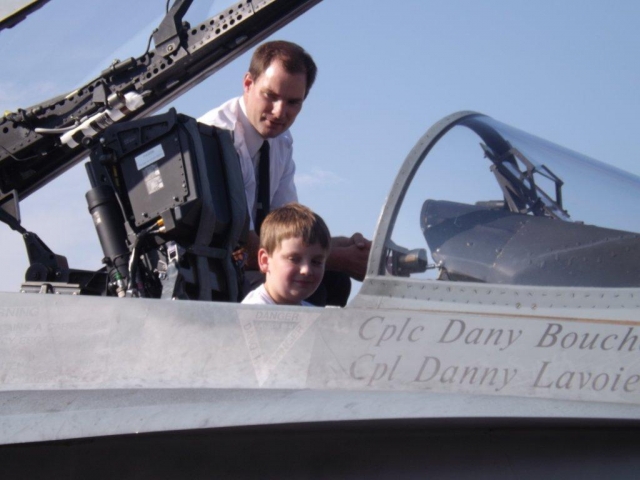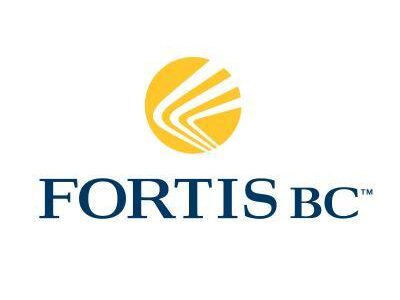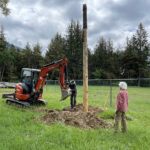Rumours of Aviation Program's death have been greatly exaggerated - and could hurt the whole region
It’s perhaps dangerously premature to start sounding the death knell for Selkirk College’s renowned aviation program, despite the college’s decision not to take new students for the 2014 year.
The program, designed to accommodate 18 students, will only see three move forward into second year, with no new applicants being accepted (21 applications were received, which statistically would indicate roughly five new students accepted for this academic year).
Selkirk President Angus Graeme told The Source he is by no means giving up on the more-than-40-year-old program, which first opened its doors to students in 1968.
“It’s a very important program to us, and to the community.”
He said this latest move is not a softening of the blow that would come upon cancelling the program, but rather a responsible step back in ensuring the program is modern, relevant, and offering what both students and industry will need in the decades to come.
“What I know is that we’re not going to bring this program back to a viable model in time for 2014,” he said, explaining they’ll take time, instead, to consult with industry, alumni, government and a variety of other stakeholders to ensure the best possible programming to serve stakeholders, not just today, but in the years to come.
“We need all eyes on this to ensure we come up with a model that will operate for the next 40 years,” he said.
“We need to reconnect the program – mesh what its original context was with a context that fits today.”
He said education is, and should be, a fluid endeavour, and things have changed a great deal since the program’s 1968 start.
“We did feel an immediate impact after 9-11, and I’m not sure we’re even back to pre-September-11 impacts.”
And that’s just one example.
Neil Coburn, vice president of education and students, pointed out that, when the program was first started, it was the only one of its kind in Canada – but is now competing with several such programs in B.C. alone.
He also made clear how capital-intensive the program is: $1 million a year to run, $l.7 million to replace two aircraft, a replacement flight simulator – a total of $4 million in capital expenditures.
Coburn said they have, in fact, scheduled meetings in Calgary within the next 10 days to look at new opportunities, eliminating obsolescence, and ensuring graduates are entering the industry with skills and understanding said industry needs.
It’s worth noting, here, that Graeme said there have been several such program redesigns that have ultimately served the college, students, industry and the region very well – the obvious example being the transition from second-year science to a pre-med program which has been widely applauded, despite great trepidation at its outset.
Both Coburn and Graeme agreed, however, that it would be unfortunate to confuse the word “renewal” with the word “cut”.
Arguably, the inherent problem is that if people start disseminating that the program is no more, students will stop applying, thereby creating a self-fulfilling prophesy with sinister undertones for the entire region.
The following is a press release issued today by the college:
In order to provide time to explore options and build a more sustainable program, Selkirk College has made the decision to suspend the Professional Aviation Program first-year intake for the 2014-15 school year.
Despite its mantle as the oldest and one of the best college professional pilot programs in Canada, the Selkirk program has experienced challenges for the past decade. Foremost among these are low enrolments, higher costs and dramatically increased competition from other public colleges and universities. This past fall, college faculty and administrators embarked on a detailed review of the program that highlighted many factors contributing to the challenges the program is currently facing.
“The Aviation Program is very important to Selkirk College,” says Neil Coburn, Vice President Education and Students. “The high quality and reputation of this program made this a difficult decision, but with declining enrolments it became clear that it was not fiscally possible to continue under the current model. Our plan is to continue the renewal process and identify opportunities that are sustainable. The goal is a quality Professional Aviation Program that is supported by industry and is able to attract a greater number of students.”
The Aviation Program is an intensive two-year flight training diploma program that provides students with the necessary tools to succeed in a technology driven and highly professional environment. Based out of the Castlegar Airport, the program has been in operation since 1968. Graduates of the program are fully qualified to enter the industry as Group 1 Instrument Rating for commercial pilots. The total cost for students is approximately $50,000 for the two-year program.
Year two will continue to be offered in 2014-15 in order to allow the three students currently in the first year to complete their diploma.
In recent years, the Selkirk program has experienced a downward trend in enrolment. Impacts of the changing aviation industry, student demographics, and the impact of increased numbers of aviation programs within the post-secondary system in BC and nationally are some of the obstacles contributing to the drop in enrolment. For example, in 1968 Selkirk had the only aviation program in a public college or university in Canada. Today there are competing programs—some as private-public partnerships—at several institutions in southern BC and Western Canada.
“If we don’t have the students, we unfortunately don’t have a sustainable program,” says Rhonda Schmitz, the Selkirk Dean responsible for the Professional Aviation Program. “The cost to deliver this program with the equipment and technology required is significant. We need to explore emerging ideas in order to improve enrolment and retention.”
Over the next few months Selkirk College will be working on creating a stronger program. There will be consultation with industry and a review of curriculum and programming aimed at attracting more applicants and increasing enrolments, meeting the interests and needs of students, and linking those with emerging opportunities for graduates in the aviation sector. Reconnecting with the aviation industry, creating new partnerships and integrating marketing initiatives will also be a priority.
“The graduates we provide to the aviation industry, our faculty and the facility we have at the Castlegar Airport are a source of pride for our college and our community,” says Schmitz. “We don’t want this to be the end, but rather a new beginning. We are looking forward to finding solutions to these challenges and will need the support of industry and the community.”























